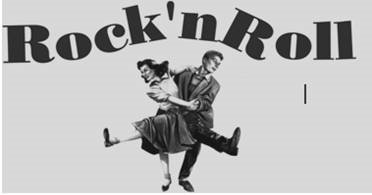The History of Jukeboxes in Americana
How the world turned on a dime
Weren't
jukeboxes always with us? Like rocks and air? It's hard to imagine
America without them. Before iPod playlists, before boomboxes, before
mix tapes, even before band t-shirts, it was the jukebox that helped us
express who we are. You chose B-17 to say, "This is how I rock. This is
how I roll."
It
was heady stuff. A little intimidating at first to walk into the neon
green and red aura, to touch the sleek chrome reminiscent of every cool
car you ever wanted. For a dime (three plays for a quarter), this
behemoth of music taste would do your bidding, using your song to tell
the world how you feel.
In
1927 the Automatic Musical Instrument Company debuted a public
coin-operated record player. Juke joints that survived on dance music
couldn't always afford an orchestra, but they could sure afford a
nickel. Jukeboxes fit where bands couldn't, and they kept their mouths shut during Prohibition.
|  |
Into the light
Wurlitzer,
makers of grand, dramatic pipe organs, put the drama in jukeboxes in
the 1930s. They knew the value of eye-popping lights and chrome, and
incorporated bubble lights and neon tubes to hypnotize you out of your
spare change.
Rock-Ola
ran with the idea in the 1940s, dazzling patrons with its complicated
mechanics. And it had the perfect name--an irony, because it was the
given name of the company's founder, David Rockola, who had no music
background whatsoever. His expertise was in coin-operated vending
machines.
Music
was brought to the diner by Seeburg, who invented the little tabletop
jukebox that let you select songs right from your booth, with greasy
cheeseburger fingers.
Neon: the universal color
Juke
joints thrived. Diners blossomed, co-opting the neon and chrome designs
for their storefronts. But perhaps the people who benefited the most
from the rise of the jukebox
were the likes of Muddy Waters, Chuck Berry, Carl Perkins, and Jerry
Lee Lewis, musicians whose music was deemed unfit for radio, but was
chosen over and over by the fingertips of the people. As it turned out,
the gleaming neon jukebox was colorblind.
The jukebox today
We
haven't changed. Let us choose our music, and give us our dazzling
displays, and top it with a dollop of root beer float memories. Today's
jukeboxes are history in a box, playing everything from LP vinyl records
to CDs to MP3s straight from the Internet. USB turntables transfer your old records to your computer. But you still get to pick the song you
think the world needs to hear.

No comments :
Post a Comment